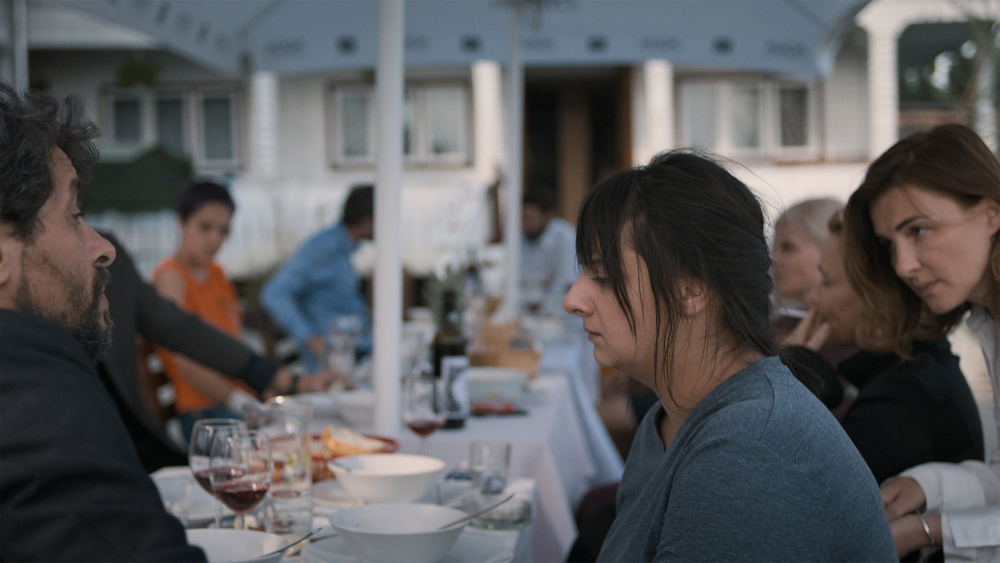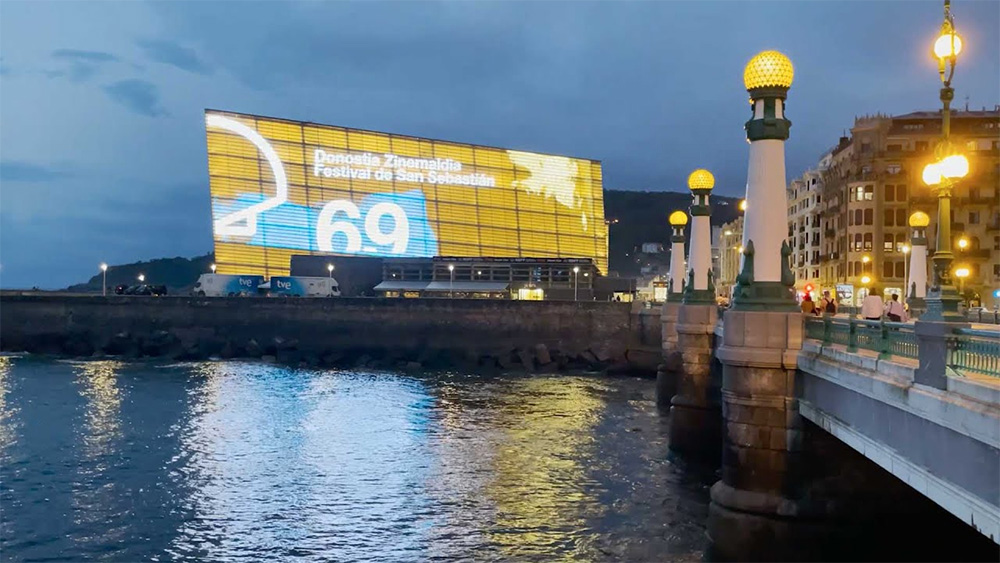"Documentation has interpretation power and specific trends of experimentation"
- Paloma Orlandini (Buenos Aires, 1996) is director and filmmaker. The feature film Ob scena has been introduced in the Nest section of the San Sebastian Festival, and we have had the opportunity to chat with him about Argentine film, his transfeminist movement and pornography. We arrived in Polboriña de Urgule, after climbing the lanes of the port.

You were born in Buenos Aires, where you currently live and work. What has your relationship to film been like? What were your first approximations and at what point did you decide to make a movie?
Since I was a kid, my parents have had a tendency to watch a lot of movies, but in all those years, I didn't feel like I was especially cinéphilous, or motivated. When I started thinking about what to study, I looked a lot at anthropology, but it seemed to me that I was going to be too far away from people when it comes to expression. At a university located on the outskirts of Buenos Aires, I discovered a documentary film career, very specific; I saw myself far from making fiction, but I approached making movies through documentary cinema; besides, I wasn't so far from anthropology, but I opened other tools for research. I believe that documentation offers a great power for storytelling and, at the same time, has a specific space for experimentation. Many works use the relationship with reality to tell stories that aren't real, and that's also very interesting.
The film school and the Argentine university, what weight do they have in society? How do they relate to film festivals worldwide, to the film industry?
In Argentina everything is centralized in the capital, and as far as the public university is concerned, ENERC would be the only one directed at cinema. On the other hand, there are also private schools, with better infrastructure and close links with industry and festivals. Then there are other schools, moving in other circuits, that have more difficulty leaping into the industry world, but that can allow more precise research, like ours. As far as funding is concerned, there are also other forms of funding outside the INCAA, such as the National Arts Fund scholarships, which are easier to obtain for those of us who do not have so much experience. As far as the amount of money is concerned, it is not so much, but there are many subsidies. Furthermore, as far as documentary production is concerned, much less funding is offered in this case, and aid to fiction and documentaries is highly differentiated.

This year he directed the short film Ob Scena, awarded at the BAFICI and selected in the Nest section of the San Sebastian Festival. How do you live all this?
I feel like I've been climbing up a sort of staircase from the project that I prepared for the subsidy to the movie that's now finished. At first I had departed from a school exercise and I found it impossible to do so. When I got the funding, I realized I was going to do it, and I realized it would be possible. I began to develop in college, although I think the center was not prepared to delve into these issues of sexuality and porn. It doesn't have any feminist perspective, although it's slowly changing. I surpassed all the expectations I had when I got it at BAFICA, because I thought only FUC or ENERC jobs came to those places. And then being here -- it's big. However, I believe that the success achieved does not have a negative impact on the intention of the film, I mean that it gets closer to people, and that is the greatest achievement.
Your work talks about sexuality, porn and sex education. What was your need to do this project? What were the first steps? And what relationship does the film have with the highest transfeminist movement that is taking place in Argentina?
Of course, it is completely linked to these movements. When I approached pornography, what happened to me was that I wanted to see other things. Because of the feminist drive and the vital needs, I felt a very large distance between what I saw and what I did. So I tried to shoot pornography. I didn't like what I had rotated, and that made me go back to mainstream files, looking for the problem, or maybe looking for its consequences. I also wanted to delve into its potential for sex education, not in a moral sense, but on the path of imagining sexual intercourse in a different way. As I moved forward, I began to get closer to the background that I had in my family, because I have many family members from the medical world, specialists in sexology. It seemed to me that this gave a kind of context to this porn movie. In my grandfather's writings, we put 30 to 40 years ago, they were thinking about this, and we can read them today as outdated and outdated, but they didn't look like that at the time. The current mainstream porn also uses very closed structures. The question I ask through the movie is whether in any way that does not classify or limit us in certain categories. The transfeminist point of view also wants to question it, and I believe that this question should be continuous, not to get to a place, but to take a course.
If you look at the device in the movie, you've created a very concrete way to approach pornography, through files, drawing and voice-over. What has this process been like?
It had many elements for the short film device: from the plastic arts, medical reports, pornographic images... And for me, it was very important that they relate through affection, that they approach through the subjective impressions that they created in me, that they can be of all. They are often contradictory experiences. I created a device to go through those original files from pornography, and I was able to build or deconstruct those files. I mean, I was looking for a way to suggest that bodies combine in a way that doesn't mean that they can only do it that way, or ask them what would happen otherwise. Working with the human body would certainly be impossible in this way. It may be an objective, however. I think my exploration responds to the device brought by the creation process. I wanted to isolate actions, remove names, identities and, in one way or another, depart from abstraction. It's not the same to do an Argentine porn to shoot sex scenes from somewhere else. Again, a friend said to me: How can there be funding to research on porn, but not to do porn? I think we should think about it.























